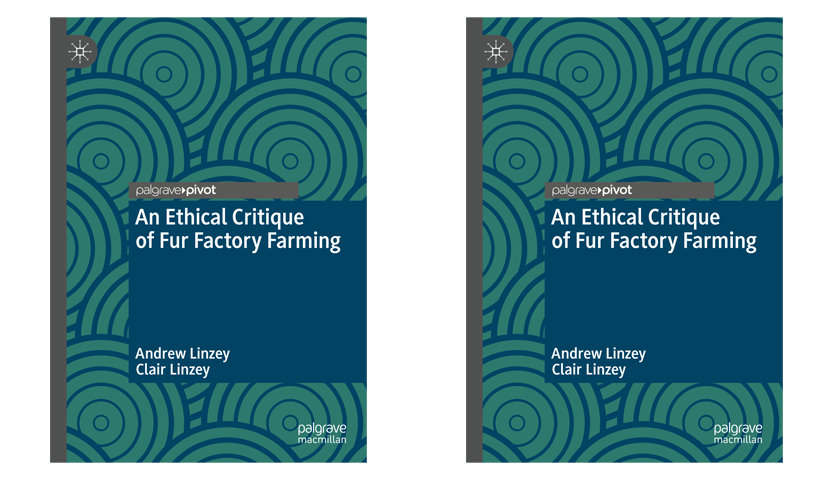An Ethical Critique of Fur Factory Farming’ was published by Palgrave Macmillan as part of their forty-volume strong Animal Ethics Series.
Purdue University ethicist, Professor Mark Bernstein describes this newly published report as providing an “unanswerable” case against fur factory farming. He continues that “Anyone even remotely thinking about buying fur, needs first to read this book.”
The study found that “the conditions in factory fur farms means it is impossible for animals farmed for their fur to express their normal species-specific behaviour. The inability to live their normal expressive life leads to behaviours known as ‘stereotypies’ and harms that include psychological stress, fur chewing, self-injury, and biting.”
Written by Directors of the Oxford Centre for Animal Ethics, Professor Andrew Linzey and Dr Clair Linzey, An Ethical Critique of Fur Factory Farming is newly published Palgrave Macmillan as part of their forty-volume strong Animal Ethics Series.
The study also found that the so-called “Welfur” system instituted by the fur industry does not prevent the infliction of major harms on animals, such as unhealed injuries, half tails, missing, and severe bent feet. The authors ask: “if fur factory farming is so animal friendly that it provides what the industry calls a ‘good’ life for animals, why should there be evidence of any injury at all?”
“The fur industry cannot have it both ways: it cannot claim to exhibit the highest standards of welfare and yet simultaneously accept that harms, sometimes major harms, can be detected on their ‘farms’. The claim that ‘Welfur’ offers protection against animal suffering is to be pusillanimous before the facts.”
The fur trade is a multimillion-pound industry worldwide. It is estimated that over
100 million animals are killed in fur farms worldwide annually. Animals farmed for their fur include mink, foxes, racoon dogs, rabbits, and chinchillas.
Bernstein also comments, “An Ethical Critique of Fur Factory Farming is especially impressive in presenting the best defence fur farming has to offer, and then showing its glaring inadequacies.”
The hundred-page report concludes that “from any ethical perspective, that takes animal suffering seriously, fur factory farming fails basic moral tests. The arguments supplied in justification are seriously flawed and or fallacious … Factory-farmed fur is a non-essential vanity product … The fur factory system is inherently inhumane. It should be prohibited by legislation.”
Fur factory farming is banned in many countries including Austria, Belgium, Croatia, Czech Republic, the Netherlands, and the United Kingdom, but is still legal in the United States, Canada, Russia and China.
